Get all the latest news on coronavirus and more delivered daily to your inbox. Sign up here.
Berlin’s hedonistic nightlife is world-famous, and regardless of the coronavirus pandemic locking down cities globally: the beat must go on.
But now the music is being played online in the capital of Germany.
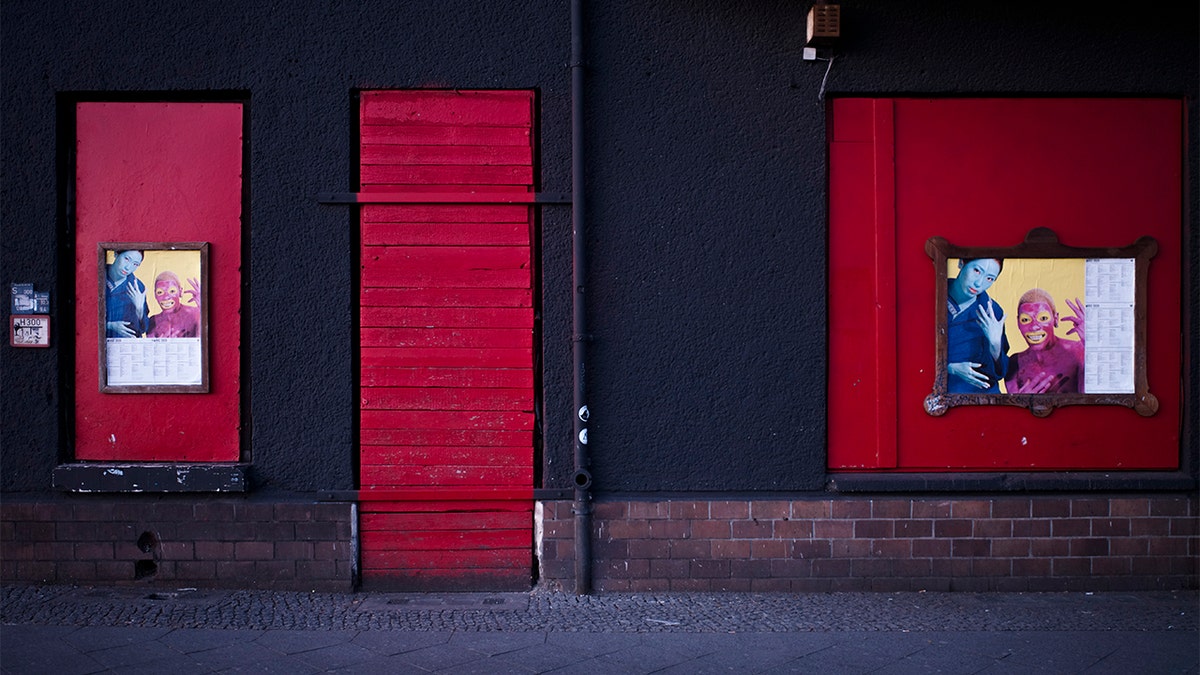
In this March 25, 2020, photo, signs are displayed near part of the front of the closed music club Wilde Renate, in Berlin, Germany. (AP Photo/Markus Schreiber)
Berlin’s nightclubs closed March 13 to help slow the spread of the virus. In response, some of them formed a streaming platform to let DJs, musicians and artists continue performing.
The first livestream of the “United We Stream” project took place last week from the stage of Watergate, a nightclub housed in a former office building by the river Spree in the city’s Kreuzberg district. The shows run each night from different clubs between 7 p.m. and midnight.
CLICK FOR COMPLETE COVERAGE OF THE CORONAVIRUS OUTBREAK
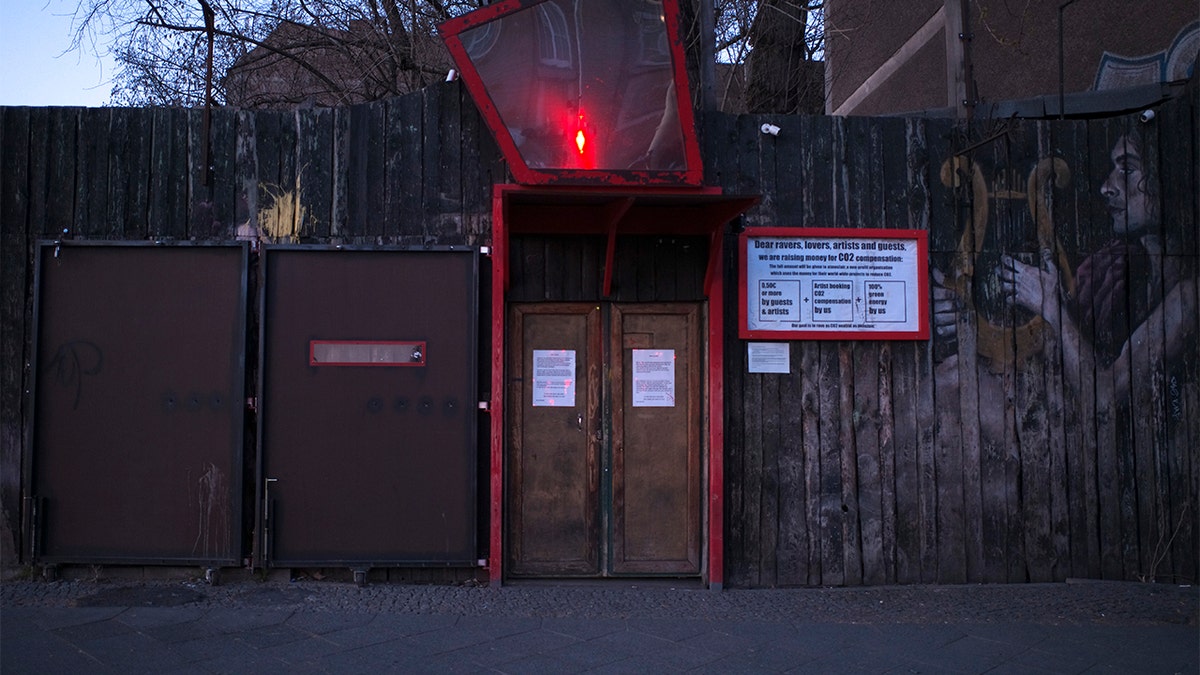
This March 25, 2020, photo, shows an entrance to the closed music club Wilde Renate in Berlin, Germany. (AP Photo/Markus Schreiber)
Stephan Langer, who lives in the state of Brandenburg, found the stream on Facebook and has been watching and listening almost every night. The free broadcast has been a life raft for him and others coping with quarantine requirements and the ban on most social gatherings.
The music “always makes me happy, so now I’m always in a good mood at home,” he said, adding: “I can close my eyes and dance and just feel free.”
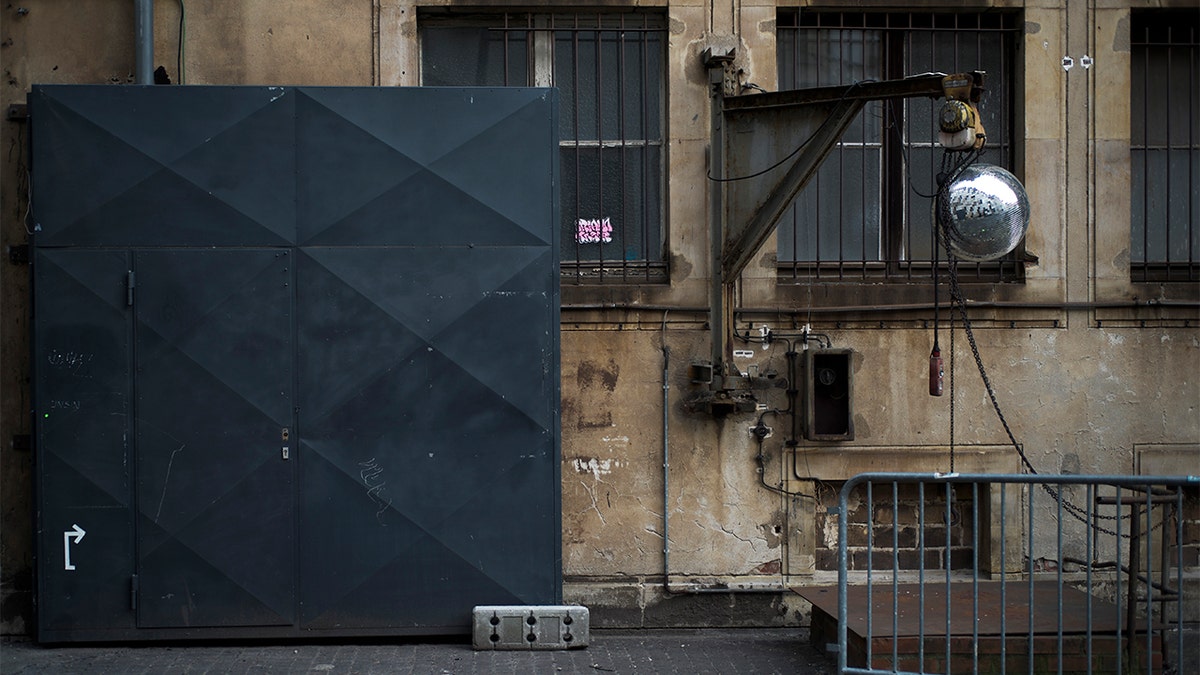
In this March 25, 2020, photo, an entrance to music club Alte Muenze is locked in Berlin, Germany. (AP Photo/Markus Schreiber)
The other advantage for Langer, who communicated via Facebook, is that the clubs change. “I get to go to some clubs where I’ve never actually been. And I get to listen to new DJs,” he said.
It’s free to watch, but the Clubcomission, the group representing the clubs that initiated the project, is seeking donations to support the clubs and performers.
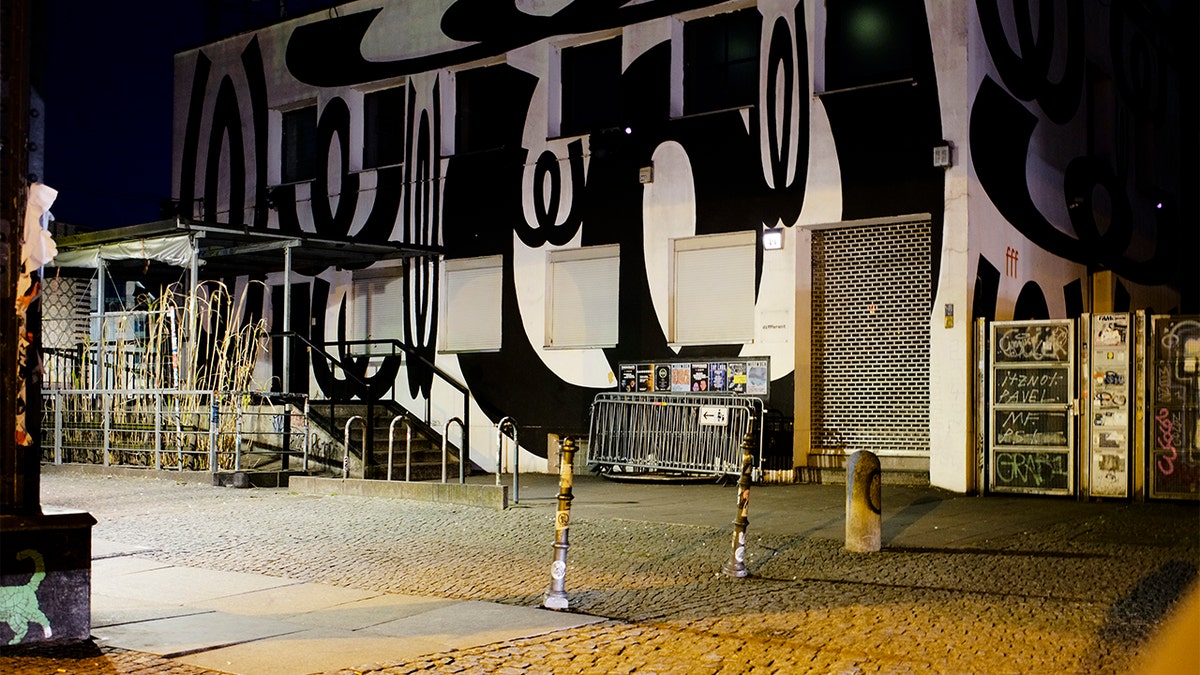
In this March 21, 2020, photo, an entrance door of music club Watergate is closed in Berlin, Germany. (AP Photo/Markus Schreiber)
“Right now, all the clubs are closed, of course,” said Lutz Leichsenring, the spokesman for Clubcomission. “There are no clubs making any money in any way. This platform is meant to at least cover the most necessary costs and to prevent insolvencies.”
So far, it seems to be working. Scores of people have been tuning in to the broadcasts and opening their pocketbooks.
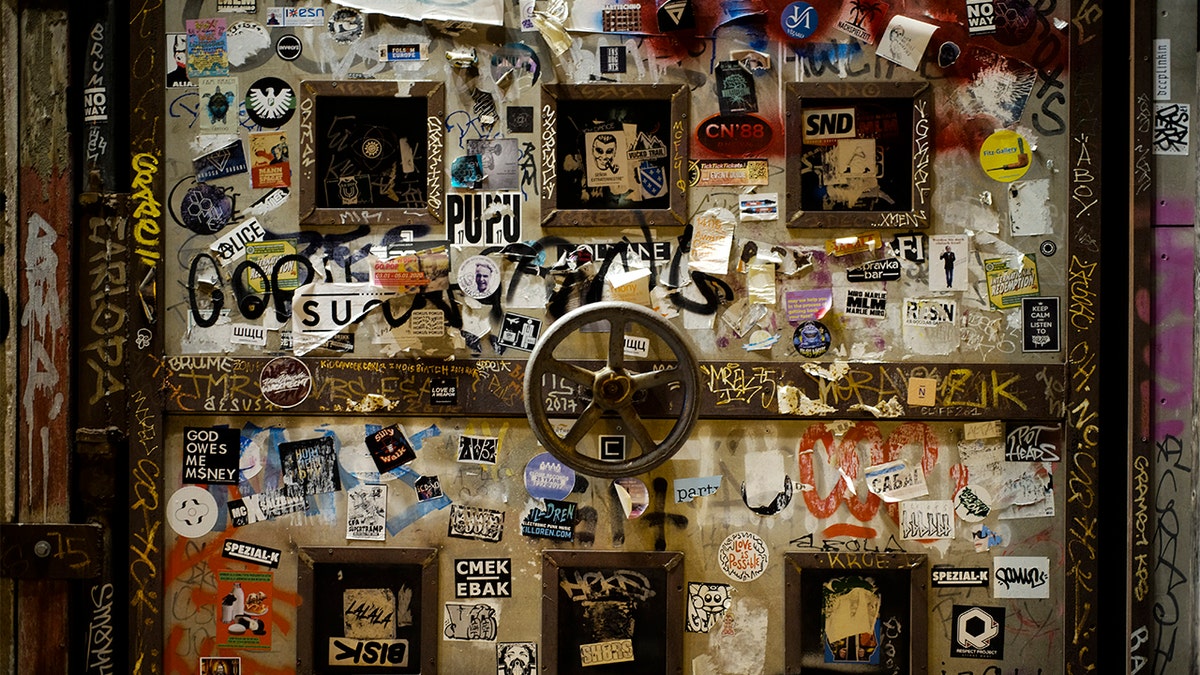
In this March 21, 2020, photo, stickers cover a door of the music clubs Sage and KitKatClub in Berlin, Germany. Berlin's nightclubs were closed March 13 to help slow the spread of the virus. (AP Photo/Markus Schreiber)
After the first weekend of streaming, produced by the TV channels ARTE and RBB, more than $292,000 had been raised.
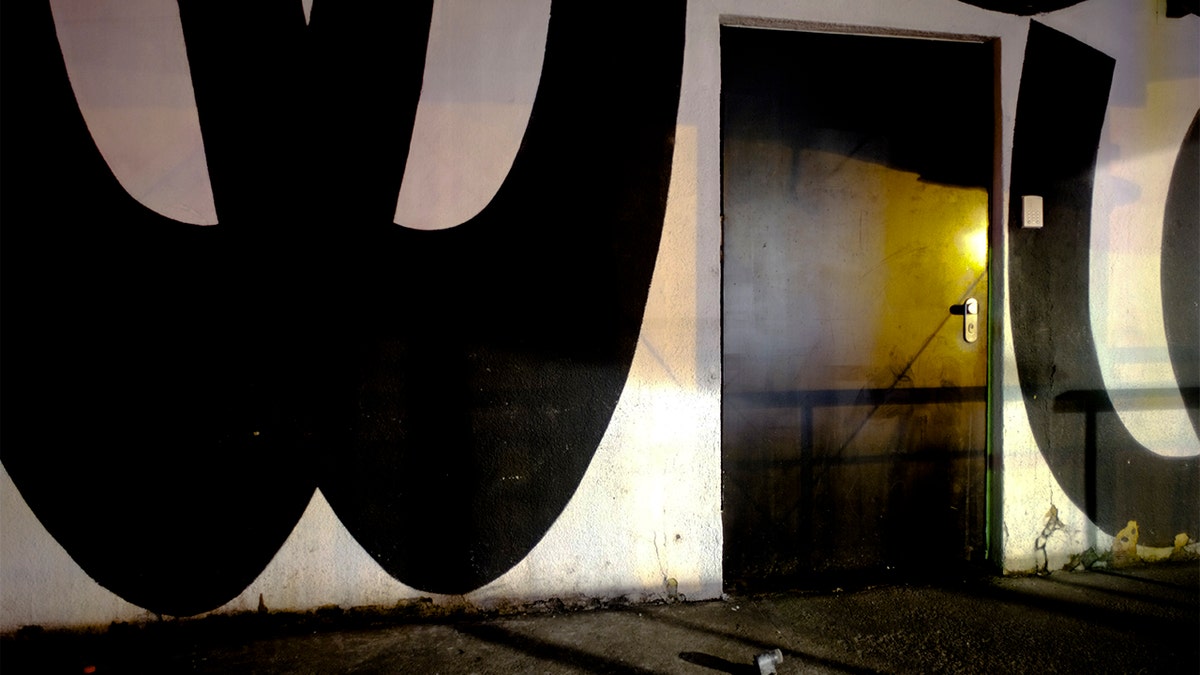
In this March 21, 2020, photo, an entrance door of music club Watergate is closed in Berlin, Germany. (AP Photo/Markus Schreiber)
After the fall of the Berlin Wall in 1989, many large buildings stood empty, and some were converted into clubs that played mostly electronic music and stayed open 24 hours a day on weekends.
There are more than 300 nightclubs in Berlin, including Berghain, the toughest velvet rope to get past in this time period in western society.
If the clubs disappear, Leichsenring said, the city stands to lose part of its identity.
“The clubs in Berlin are a part of the DNA of this city,” he said. “If that were to fall apart, and the city just becomes filled with large companies and chain stores, then Berlin would look very different. That would be a real shame.”
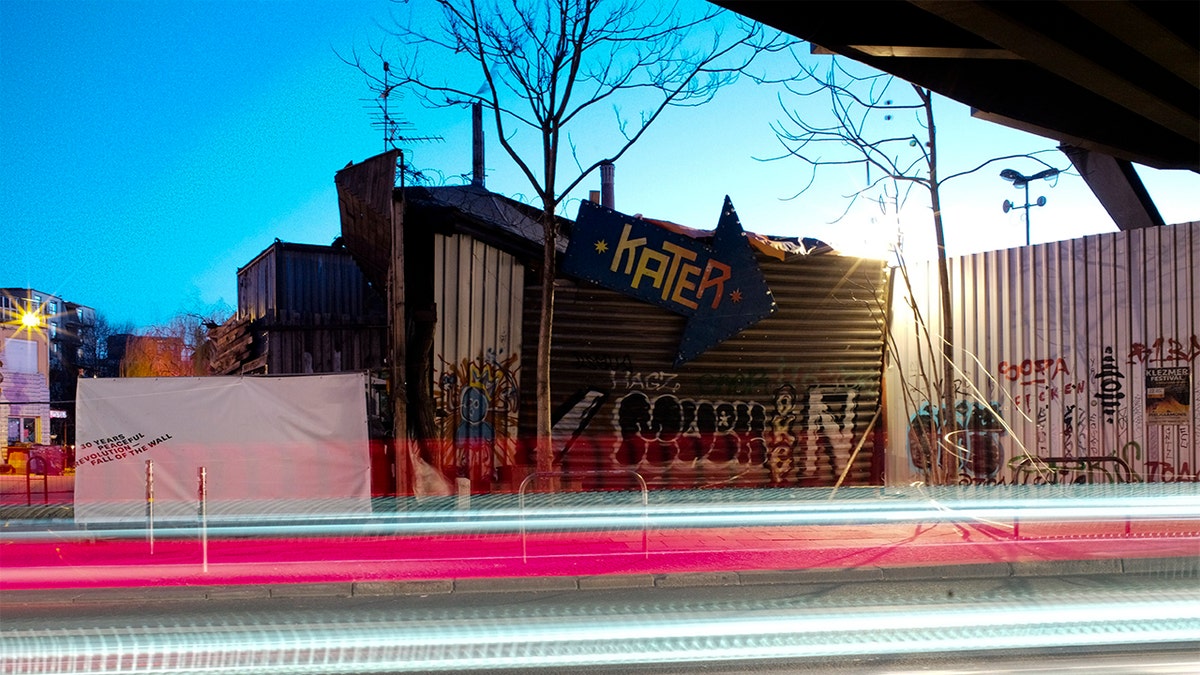
In this March 21, 2020, photo, the music club Kater Blau is closed in Berlin, Germany. (AP Photo/Markus Schreiber)
Langer, for one, thinks the role of the clubs can’t be overstated, especially during the uncertain times brought on by the coronavirus.
CLICK HERE FOR FULL CORONAVIRUS COVERAGE
“I think it is really important to save the clubs because they give you a chance to feel free for one night, to forget the problems and just have fun,” he said.
The Associated Press contributed to this report.









































